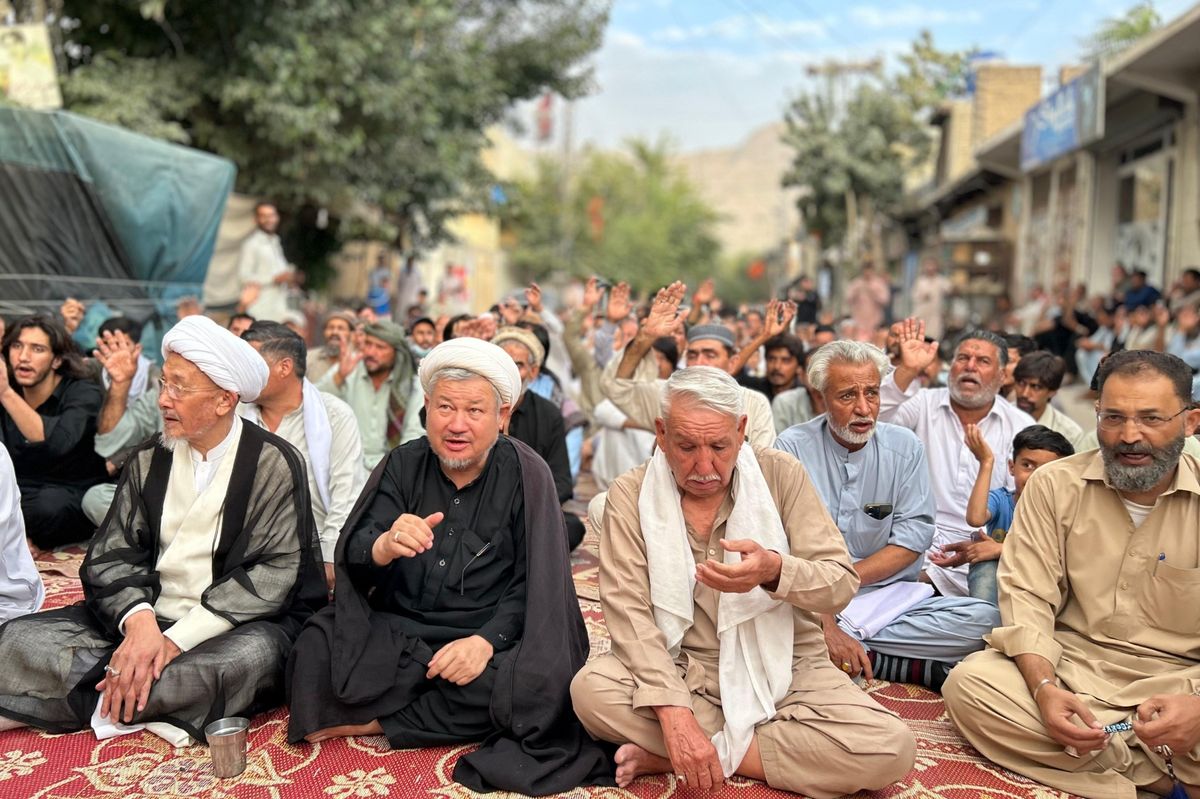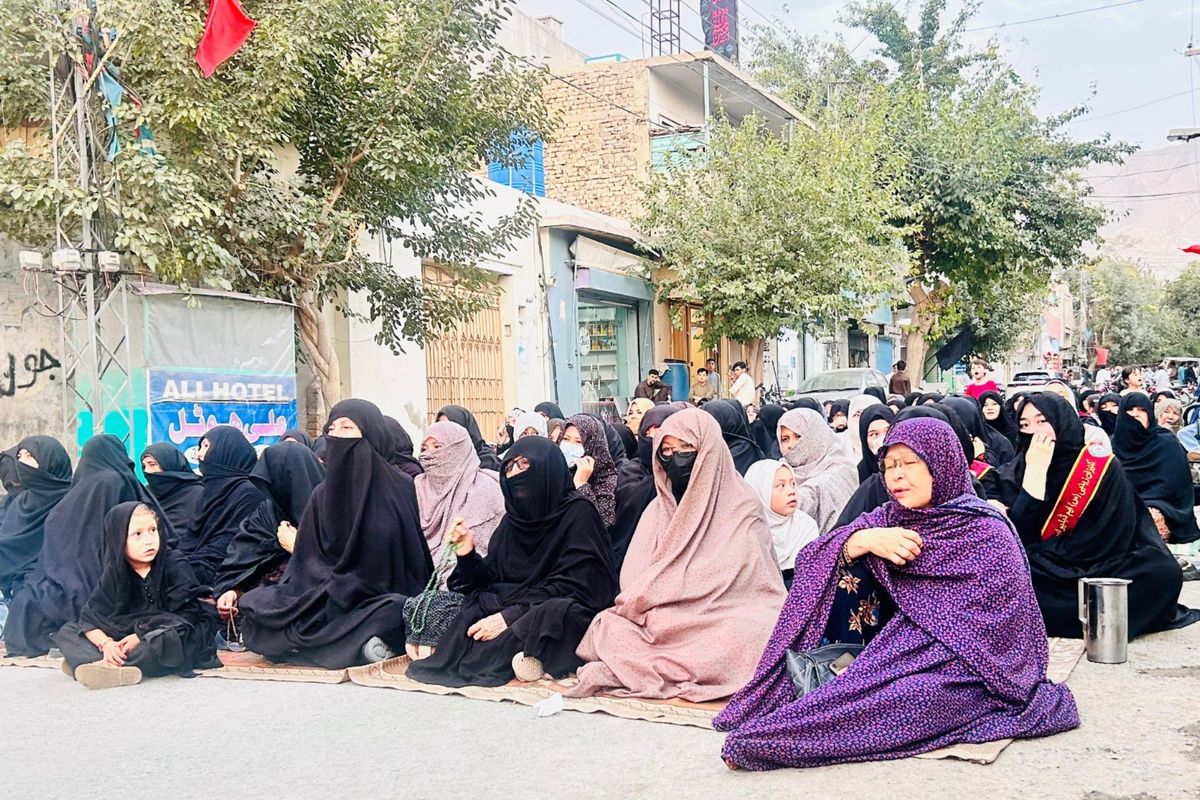‘We are not going back’: Pilgrims defy road ban as Arbaeen journey halts in Quetta
The protest has entered its fifth day at Alamdar Road in Quetta after Pakistan blocked overland travel to Iran and Iraq
Murtaza Zehri

Scores of Arbaeen pilgrims stranded in Quetta protest to continue journey to Iraq.
Nukta
Ashiq Hussain had long carried a quiet dream. From the remote, mountainous town of Parachinar near Pakistan’s northwestern border with Afghanistan, the 58-year-old sold his goats, emptied his savings and set out on a thousand-kilometer trek to reach Karbala, Iraq.
He hoped to walk among the millions who gather each year for Arbaeen, one of the world’s largest religious pilgrimages. That journey, however, came to an abrupt stop on the roadside in Quetta.
Pakistan’s federal government has halted all overland travel to Iran and Iraq, citing security concerns. The decision has left thousands of Shia pilgrims stranded and frustrated, disrupting a deeply sacred annual journey for many Pakistani Muslims.
“I’m not turning back,” Ashiq told Nukta, his voice shaking. “Even if we are martyred, we will still go to visit the shrine of Imam Hussain (RA). A few terrorists can’t be an excuse. The state is powerful enough to protect us. Just let us go as we don’t ask for anything else.”
Ashiq is one of hundreds - possibly thousands - now stuck in Quetta after spending their hard-earned money on travel documents, visas, and transportation in hopes of reaching Iraq by road.
- YouTube www.youtube.com
Each year, more than 60,000 Pakistanis make the journey to Karbala for Arbaeen, which commemorates the 40th day after the martyrdom of Imam Hussain (RA), the grandson of Prophet Muhammad (PBUH), and his companions at the Battle of Karbala.
Pilgrims from across the world walk for days from Najaf to Karbala in an immense show of spiritual solidarity and grief.
This year, however, Pakistan’s Interior Minister Mohsin Naqvi announced a sudden halt to all road travel for the pilgrimage. Only air travel would be permitted, he said, citing national security and public safety.
The decision, he added, was made in consultation with the Foreign Office, the Balochistan government, and intelligence agencies. Prime Minister Shahbaz Sharif has reportedly directed aviation authorities to increase flight availability to Iraq.
But for pilgrims like Ashiq, flying is a luxury far out of reach. “We’ve already spent everything. Flying is impossible for us,” he said. “This sudden decision is the fault of the interior minister. We’ve come 1,000 kilometers and now they say we can’t go any further? We are not going back.”
Niqab Hussain, another pilgrim marooned in Quetta, shared the same frustration. “We’ve been planning this for months. We’re stuck here in Quetta for four days. No buses are leaving for Taftan (Iran border),” he said. “Only a few can afford air tickets. For the rest of us, even bus travel is a stretch.”

The government’s announcement has triggered public outrage. A peaceful sit-in led by the Balochistan Shia Conference has entered its fifth day on Quetta’s Alamdar Road. Protesters say they won’t move until the road ban is lifted.
Conference officials, along with Wilayat Hussain Jafri, Vice President of the Majlis Wahdat-e-Muslimeen (MWM) in Balochistan, criticized the decision’s timing and lack of transparency. “It came through a tweet,” they said. “More than 5,000 people are stuck in Quetta because of this.”
They argue that the state cannot use security threats as a blanket excuse to restrict religious freedoms. “The law and order situation isn’t new,” they said. “It’s the government’s job to provide security, not to block religious journeys.”
As the federal government rushes to arrange special flights, thousands of pilgrims remain in limbo. For Ashiq and others, the road to Karbala has never felt longer -- not in distance, but in despair.










Comments
See what people are discussing